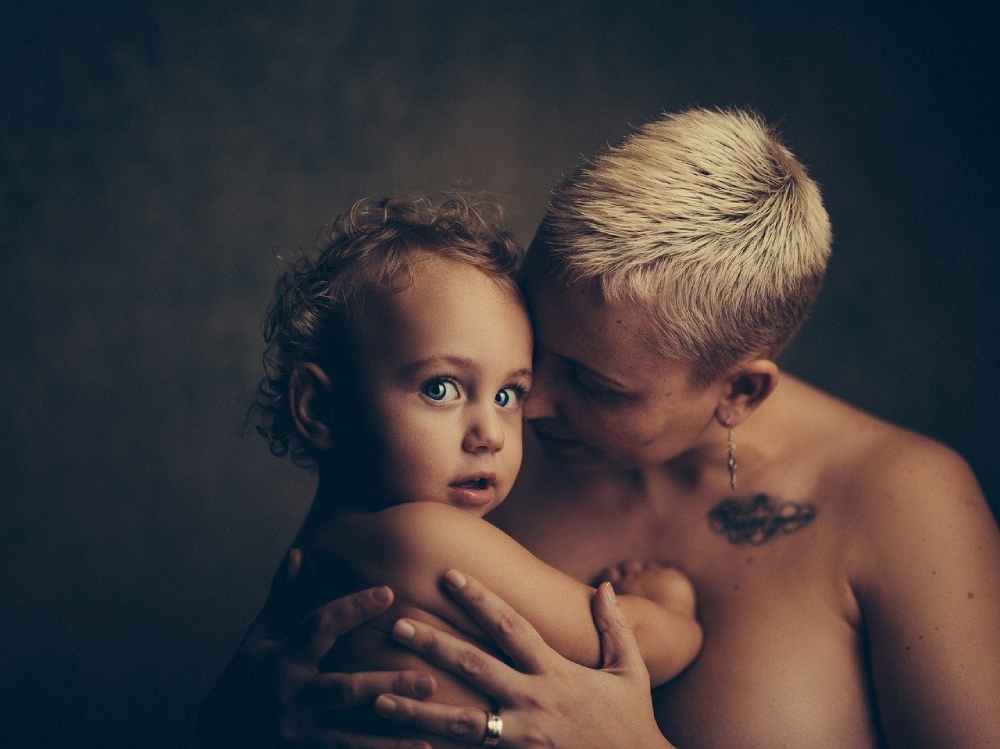Breastfeeding beyond two years - good or bad?
April 9th, 2021
1451 Views

Another one of those hot parenting topics! Some women continue to breastfeed their children until they are three/four years old. This is known as ‘extended breastfeeding’. Most people believe that kids shouldn’t be breastfed and that breastfeeding is strictly for babies. Some cultures do breastfed babies for much longer, but breastfeeding beyond two years to most people, seems strange!
Most people believe that breastfeeding a baby for the first year can be very beneficial as the baby gets many nutritional benefits from their mother’s milk. The World Health Organisation (WHO) advocates breastfeeding a baby for the first two years along with the introduction of solid foods. In the United States, the common age to stop breastfeeding is six months. 36% of babies are breastfed till they are 12 months old and 15% until they are 18 months old (CDC – Center for Disease Control)
Most people believe that breastfeeding a baby for the first year can be very beneficial as the baby gets many nutritional benefits from their mother’s milk. The World Health Organisation (WHO) advocates breastfeeding a baby for the first two years along with the introduction of solid foods. In the United States, the common age to stop breastfeeding is six months. 36% of babies are breastfed till they are 12 months old and 15% until they are 18 months old (CDC – Center for Disease Control)
What are the benefits of extended breastfeeding?
It can increase a baby’s brain power
A number of studies have shown that breastfeeding a baby for longer can help their brain to develop because of all the nutrients in breast milk. Children who are breastfed the longest have the greatest cognitive achievements.It can keep the mum healthier
Medical studies are continuing but several have already found that breastfeeding your baby helps protect against breast cancer. The level of protection is increased the longer you breastfeed and also by how many babies you breastfeed. Women who breastfeed also have a lower risk of ovarian cancer. Studies are currently being made to see if breastfeeding can lower the chances of developing osteoporosis in later life.It is quality time together
Many moms lovely the opportunity to take a break and just spend time cuddling their baby as they feed. As the baby becomes a toddler, feeding times will get quicker because there is so much an active toddler wants to do, so they will not stay still for a minute longer than needed!It can calm an upset toddler
If your child is upset or agitated breast milk can soothe and also works wonders if they have fallen over and need to be comforted.It can protect your child against illness
Children aged one to three who continue to be breastfed are protected against illness. Fewer are ill and if they are, they recover more quickly. There is a lower mortality rate too.
And the negatives….
Extended breastfeeding is hard work and requires a great deal of energy.
A healthy balanced diet is essential
If a nutrient such as calcium is missing in the mom’s milk because she is not eating calcium rich foods, her body will take it straight from her bones.Mom is limited in what she can eat and drink and taking medication of any kind – even herbal- is difficult.
Moms need space from their energetic toddlers, but no one can take her place unless she expresses her milk.
Extended breastfeeding can make nipples sore and sometimes they can develop fungal infections. There is the added risk that two and three year olds have teeth!
At the end of the day, this is an argument that is going to rumble on with parents on both sides of the fence. The important point to remember is that each baby is very individual and it is important that you are both happy with the feeding arrangement. Many babies wean themselves from breast milk as they decide that food and fruit juice is preferable. Once they are a year or more, some babies prefer to have a single breastfeed at night to help them settle. Others are never happy being breast fed and prefer a formula feed from early on. All these scenarios are fine. Find what works for you and your baby – and stick to it!Chrissie x

